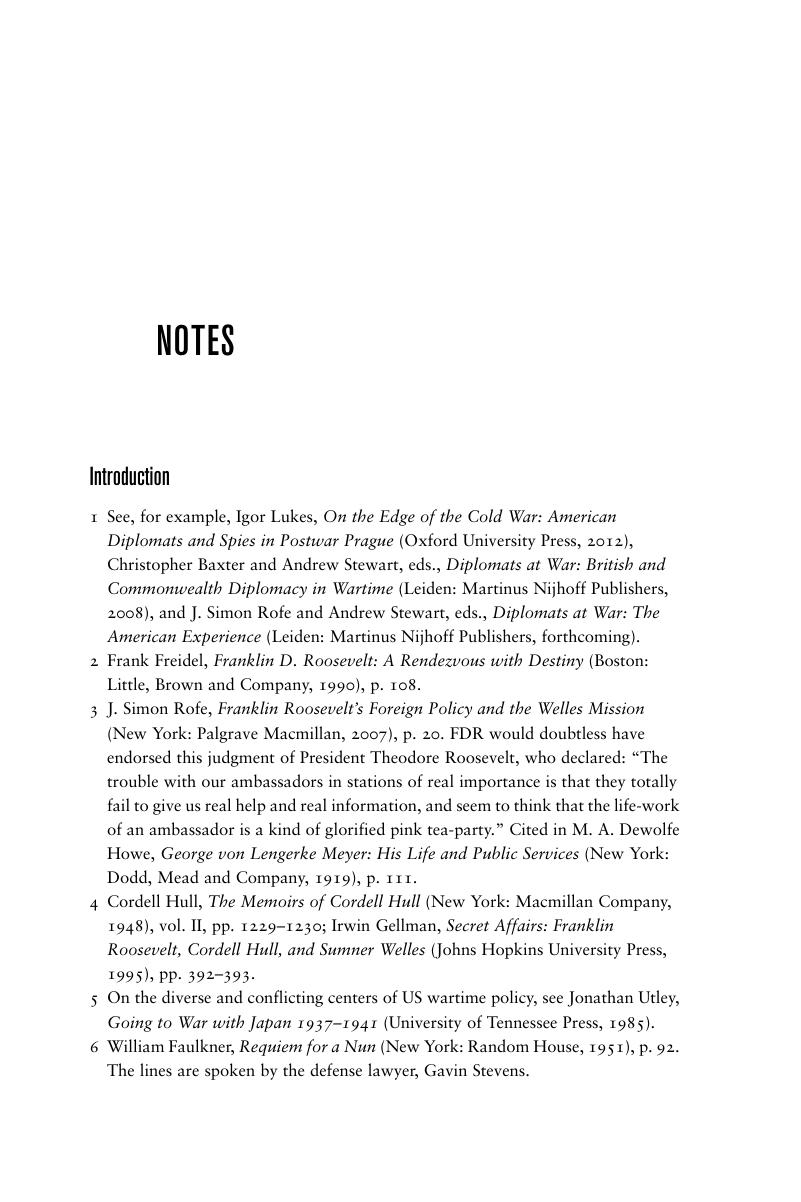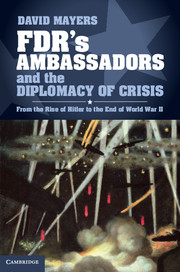Notes
Published online by Cambridge University Press: 05 December 2012
Summary

- Type
- Chapter
- Information
- FDR's Ambassadors and the Diplomacy of CrisisFrom the Rise of Hitler to the End of World War II, pp. 260 - 330Publisher: Cambridge University PressPrint publication year: 2012



